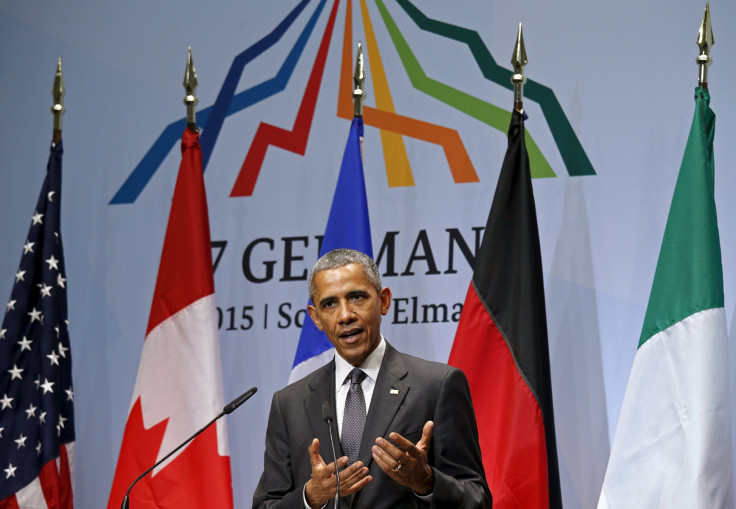US Doesn't Yet Have Complete Strategy Against ISIS: Obama

The U.S. is still hammering out a strategy to better train and work with Iraqi security forces against the Islamic State group, or ISIS, President Barack Obama said during a news conference Monday from the Group of Seven summit in Germany. The president said his national security team doesn’t “yet have a complete strategy” against ISIS as it waits for commitments from Iraq on training and recruitment plans.
“We want to get more Iraqi security forces trained, fresh, well-equipped and focused,” Obama told reporters. “We’re reviewing a range of plans for how we might do that, essentially accelerating the number of Iraqi forces that are properly trained and equipped and have a focused strategy and good leadership.
“We need to improve the speed at which we’re training Iraqi forces,” he added, saying that he would share a finalized plan with the public once the Pentagon presented him with one.
His remarks came shortly after he met with Iraqi Prime Minister Haider al-Abadi on the sidelines of the G-7 summit in Kruen, Germany, and acknowledged there had been “setbacks” in the fight against Islamic State group militants. But he still waxed optimistic about the overall military campaign against the group, saying ISIS “is going to be driven out of Iraq and ultimately it is going to be defeated.”
During Monday’s news conference, the president fielded questions on a range of international and domestic issues, including continued sanctions on Russia, a legal challenge against the Affordable Care Act, a recent data breach against the U.S. government and the fate of his executive action on immigration.
This year’s G-7 summit was the second in a row to which the group declined to invite Russia over its actions in neighboring Ukraine, a fact Obama acknowledged Monday. He said Russian President Vladimir Putin still reserved a choice over whether to pull back from its support of Ukrainian rebels or “wreck his country’s economy and continue Russia’s isolation in pursuit of a wrongheaded desire to recreate the Soviet Empire’s greatness.” Sanctions against Russia would remain in place as long as Moscow continued to violate the terms of last year's Minsk agreement, he said.
He also addressed last week’s discovery of a massive data breach in the federal government. Although the hack was traced to Chinese origins, the president declined to say whether China’s government could have been behind the attack. But he said the U.S. has long known there were “vulnerabilities” in its electronic communications, and that attacks would continue. “That’s why it’s so important for Congress to pass cybersecurity legislation,” he said.
Obama also remained committed to his executive action on immigration, currently facing a legal challenge in a federal court. Despite a recent injunction on the administration’s plans to shield as many as 5 million undocumented immigrants from deportation, Obama said he was confident he had the legal authority to execute the programs.
He concluded the conference by addressing the current challenge to key provisions of the Affordable Care Act, which will soon face a ruling from the Supreme Court, saying there was “no reason” by which the court could find the law unconstitutional. “Under well-established precedent, there is no reason why the existing exchanges should be overturned through a court case,” he said. The Supreme Court is deciding whether federal subsidies for healthcare exchanges should be allowed in states that don’t have their own exchanges.
“This should be an easy case. Frankly, it probably shouldn’t even have been taken up,” he added.
© Copyright IBTimes 2024. All rights reserved.






















